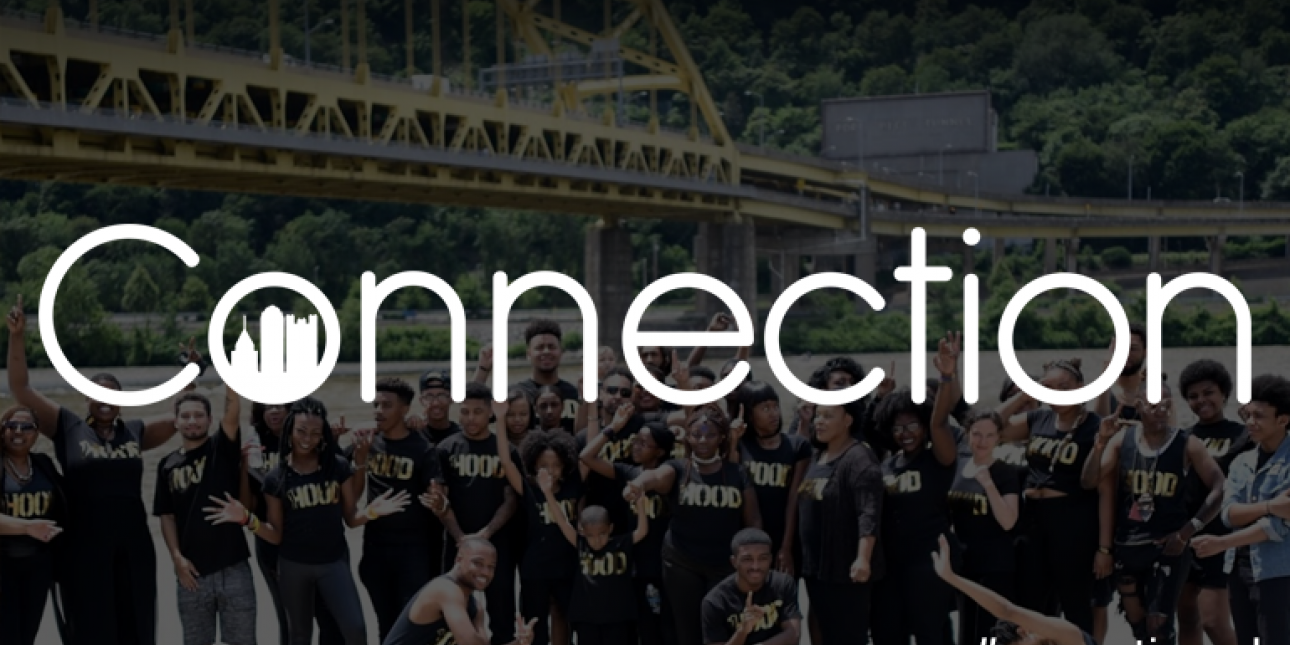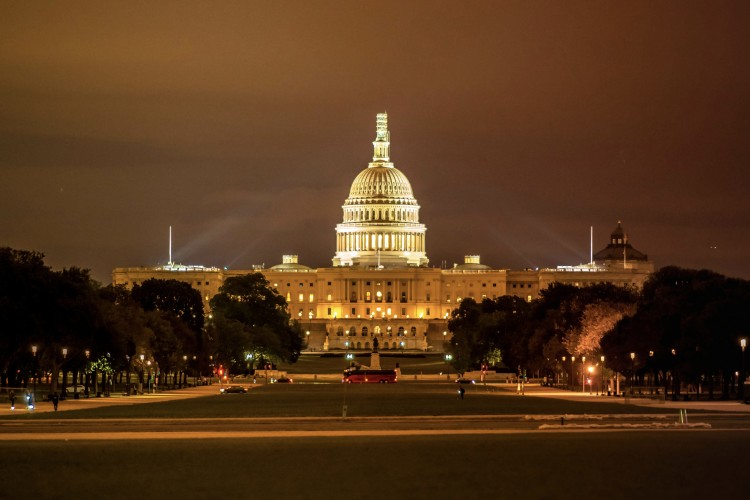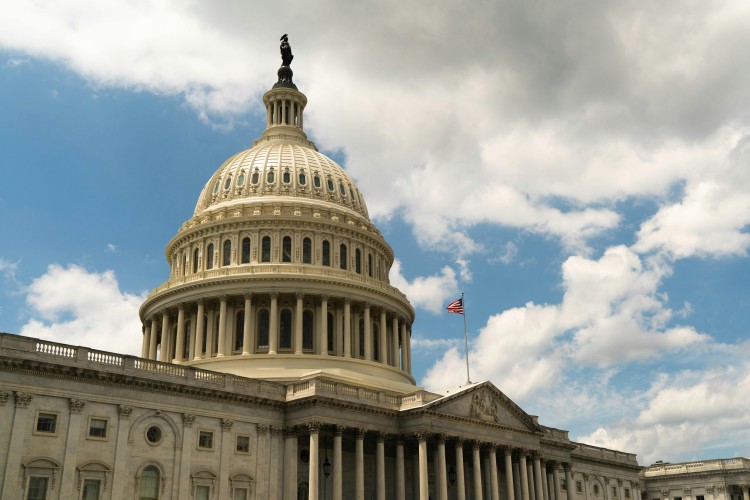#ConnectionPGH Talk: “Live Your Truth: How Your Passion + Purpose Will Change Your Life” by Jasiri X

About The Speaker
Jasiri X is the first independent hip-hop artist to be awarded an Honorary Doctorate, which he received from Chicago Theological Seminary in 2016. This recognition grew out of the spiritual/political urgency and artistic vision he shared on songs like “Justice For Trayvon” and “Strange Fruit (Class of 2013),” which documented the unjust police killings of young Blacks in the Millennial Generation. Likewise, he has been deeply involved with the national Movement for Black Lives, working with organizations like The Gathering for Justice, Blackout for Human Rights, Justice or Else, BYP100 and Sankofa. Still, he remains rooted in the Pittsburgh-based organizations he co-founded, the anti-violence group One Hood as well as the New Media Academy, which teaches African-American boys how to analyze and create media for themselves.
About Connection 2017
The Connection 2017 experience took place in Pittsburgh, PA. To learn more about the event, visit our Connection page today.
About The Talk
Do you follow your passion and purpose, really? In this inspirational #ConnectionPGH talk, independent hip-hop artist Jasiri X speaks on how his passion and purpose led him to start his own artist collective and New Media Academy for African-American youth.
Transcript
Peace, peace everybody... So uh, yes, Pittsburgh's own, but I was actually born on Chicago, Illinois, in the south side of Chicago... Yes, me and my mom, south side, and out Chicago now, and you know, but unfortunately, at a very young age, my father made the decision to leave the household, and it really put my mom in this kind of valley of decision, of what she was gonna do. Um, so my mother was already raising us, she decided not just to go back to work, but she also enrolled in Roosevelt University, where she went on to become valedictorian of her class. (APPLAUSE) Yeah, give it up, yeah, but unfortunately, my father leaving had an economic impact on our household. And we were in kind of one part of the south side that was decent, and we, you know, ended up having to move to a worser part (I know that's not a word but y'all know what I mean!). And so, this was around the same time where I began to want to discover the world that was outside of my door. And you know, unfortunately, at that time, I was- outside of my door in that neighborhood was violence, and gangs, but what I didn't know was my mother was kind of plotting to get us out of this situation. So my mother ended up getting a job with Westinghouse Electric Corporation here in Pittsburgh as a nuclear engineer, and what was interesting about that was she didn't have an engineering degree. So I still don't know how she did…. You know they say, “black girl magic,” that's real, right - um, so, she ended up moving us from the south side of Chicago to Pittsburgh, actually to Monroeville, Pennsylvania. You can see how happy I was to leave my Southside home, and this was really my first introduction to like in-your-face racism. You know, I was raised socially conscious. My given name is just Syria Ronde, but my experience in the south side of Chicago was really like 100 percent black, and I remember the first time we went to Monroeville Mall and was called n******. Like the first time, and then you know, I’d go to Gateway High School, and I'm having these similar experiences, and I'm dealing with racism, and so my first response was like, you know, you won't give me- come, I mean, you come at me like that, we gon’ get these hands, you know, we gonna fight. And so I remember when the school called my mother and told her I was suspended for fighting, and she made it very clear that that would be the last time I would have anything to do with any type of suspension in our household. And this is where I kind of had to make a decision, but this is where I found my purpose, because this is how I got into activism, finding out how to deal with this kind of hostile environment that I found myself in. So at Gateway High School we started a club for students of color called, “All Cultures.” We petitioned the school to teach a black history class, and I was off, all right. How I found my passion the hip-hop was a little bit simpler. My best friend at the time, Eldridge, he got some turntables for Christmas, and he said, “I would be the DJ, you gonna be the rapper.” And I wrote a rap, and it was terrible, but it would be, you know, like if I tossed you a trumpet and say, I played a trumpet. You know you're gonna start, it's not gonna be good, but thankfully, you know, I was nurtured, people supported me, and I started to get good as a hip hop artist. But you know, but, I wanted to, because of the experience that I had, I wanted to combine my passion and my purpose. I'm gonna do hip hop that was socially conscious. So I was just told, over and over again, nobody wants to hear socially conscious music, you're not gonna blow up like that, you're not gonna sign a big record deal like that. So it was like, well, how do I find a way to combine my passion and my purpose? So in 2006, I got with a group of men, and we started organization here in Pittsburgh called 1Hood, and the idea around 1Hood was that, you know, one of the gentlemen, if you see the guy with the beard, the long beard- his name is Paradise Gray. He said, you know, one of the things that Pittsburgh in our communities we suffer from hood-ism, that we kind of, we all, all the different neighborhoods were dealing with poverty, we're dealing with community violence, we're dealing with police brutality, failing schools, lack of affordable homes, where we take our frustrations out on one another. And so, we felt the real power in to really dealing it with our problems, with our unity, so we began to use hip-hop as a way to bring these different communities together in peaceful situations. Well, at the same time a situation happened in Jena, Louisiana, called the Jena 6. I don't know if you all remember this, with six black men in Jena, Louisiana, were arrested for a fight in high school, and one of the gentlemen, Michael Bell, was given 10 years in prison. So at that time, you know, I wanted to help, and I didn't have a lot of money, and so I said, well, you know what? I'ma write a song. And so, I wrote a song, called “Free The Jena Six” and I put it on the website. It was a website out at the time, I don't know if y'all remember MySpace, I'm goin’ to MySpace- y'all have some MySpace pages- and so, I put this off my MySpace page, and somebody sent it to a radio host named Michael Bayes, and the next thing I know, the song was being played all over the country. I end up going to Jena, Louisiana, it was a rally of 60,000 people, meeting the families of the Jena Six. The Jena Six, the charges end up getting dropped to the Jena Six, Michael Bell gets out of prison, and it was this victory, and I saw how combining my passion and my purpose could lead to something powerful. But it also put me in a valley of decision, because I had a job, and my job got direct deposit, you know, so you ain’t even got to take the check to the bank, you just check your bank account, and it's already there. And so, what I was like, well, what am I gonna do, because people say follow your dreams to the point where it becomes cliche, but most people really don't follow their dreams, follow their love, and follow their passion and a purpose. So I took a leap of faith, and I remember, like the last check, and thinking like, “there is no check coming after this,” right, I got to do this all the way. And so I was blessed in 2010 when I left my job, I did, I put on a song called, “What If The Tea Party Was Black?” This song went viral, and I ended up signing a record deal with a record label called Wandering Worx Entertainment in Vancouver and I was off as a hip hop artist. But I didn't feel like it was good enough for me, you know, I feel like conscious rappers should have the same standards as gangster rappers. You know, if you're a gangster rapper, they want to see like your rap sheet. To me, if you’re a conscious rapper, it’s like what are you going with your consciousness, and doing in the community? So in 2010 we started the 1Hood Media Academy here in Pittsburgh, the Heinz Endowment of the Pew Center actually did a study of how black men are portrayed in the media here in Pittsburgh. What they found was ninety percent of the time, when they portray a black men in the media, the subject was crime, right? When it came to quality of life stories, it was less than three percent. And so we went to the Heinz and a Pew Center and said, “Hey, we want to teach young black men how not only to analyze media, but we want to give them the tools so they can tell their own story!” And thus, we started the 1Hood Media Academy. This is- actually, last year was 1Hood’s 10 year anniversary. Yes, and we realized right away that it couldn't just be black men, because you know, we were that successful that we had to open it up to black women as well. So we have a black woman CEO now, the incredible Celeste Smith, and- and teaching artists, we've become this artist’s collective. You were here in the morning, you might have saw, uh, Dasu and Jacquea, do they thing if you was here in the morning, give it up for them. And so it's like, man, I'm actually being able to live my passion and my purpose, right? So you know my passion and my purpose led me to the frontlines of Ferguson. You know, it's not always something that's gonna be all great and lovely and flowers, right? Sometimes, when you live your passion and your purpose, particularly this activism, you might have to put yourself in danger, right? This picture was from- this is one year and one day after Michael Brown was killed in Ferguson. This was the first time I was arrested with the group of activists led by Cornel West, but my passion and purposes also allowed me to share space with some of the greatest leaders of our generation as well as share stages with some of the greatest artists of our generation and of all time and my favorites. Ues, Stevie Wonder, right there in January. I was blessed to share a few words at the women's march on Washington in front of millions of people, so if you could just imagine the energy to go out there and stand in front of millions of people all united for common cause and purpose it was very powerful. And I was able to share the stage with two incredible poets, Arthur Monet and my son. Unfortunately, though, this year in January my mom passed away, and the day she passed away I was living my purpose and my passion. I was in Philadelphia, Pennsylvania, performing at a rally where everybody came together to save our health care (we still trying to save our health care right now) and what was interesting about this rally was that they thought a thousand people were going to show up. And ten thousand people filled the streets of Philadelphia. Despite that, despite my mom passing away, before she passed she was actually able to see me get an honorary doctorate degree from the Chicago Theological Seminary coming full circle, right? And what I love most about my honorary degree, it says, “Jasiri X.” Like, I didn't have to dilute my truth, I don't have to be something other than who I was I didn't have to shrink in the face of oppression, but I could be my full and complete self, right? So the last thing I would like to leave you with is three things, I say: find your passion, live your purpose, love your people. I'm Jasiri X.


